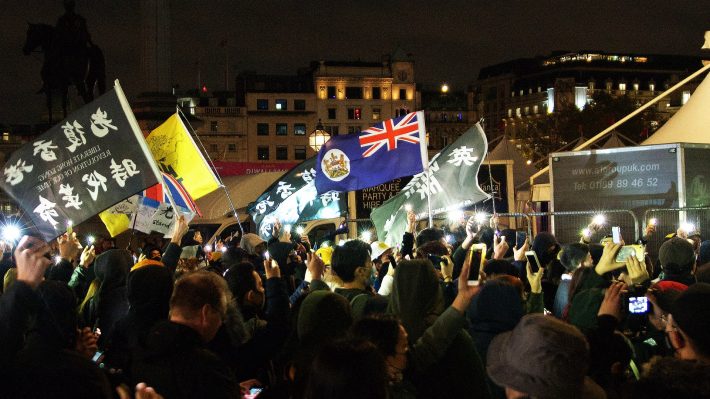BY PERSEUS
After cracking down on a year of pro-democracy protests in Hong Kong, Beijing is expected to pass a sweeping national security law on Tuesday criminalizing dissent – legislation that experts say could pose the biggest threat to the city’s freedoms since the 1997 handover from Britain to China.
As the law looms over the city, the United Kingdom Government has begun formulating policies to assist those from Hong Kong who hold British National Overseas or BN(O) passports, and will be launching a review scheme that may expand status rights to family members. The BN(O) was created in order to allow those Hongkongers who wished to keep a tie to the UK the use of a British passport as a travel document, but did not grant the right to live or work in the UK. However, as with yin and yang, the joy of ensuring that family members are included in the BN(O) status review also comes with a darker element: what of the victims of domestic violence who have entered the UK?
The status was only obtainable between 1987 and 30 June 1997 by registration. The UK Government indicates that there are around 350,000 people who hold valid passports, with around 2.9 million people in Hong Kong who hold such status. In response to the proposed national security law, the UK is currently planning what Prime Minister Boris Johnson describes as “one of the biggest changes in our visa system in British history.”
Questions about the BN(O) status review scheme have been in abundance since the first news of the scheme was announced by Foreign Secretary Dominic Raab via a Twitter video on May 28, including whether the scheme would also include those family members of status holders, even if they themselves did not have the passport. Subsequently, as more details of the review have made its way to the public domain, it has been confirmed that spouses or partners and child dependents under the age of 18 would also be included.
It is difficult to come across accurate statistics in relation to domestic abuse because there are always going to be victims, regardless of gender identity, who will be unwilling to report what has happened to them.
In April, the South China Morning Post published an article highlighting the account of a woman surnamed Cheng who faced domestic abuse but was too ashamed to tell anyone. Another woman, Lam, had to flee her home with her older daughter after her husband, who had lost his job after the pandemic emerged, hit her repeatedly. The article cites Hong Kong’s Social Welfare Department’s statistics for 2019 where there were reported 2,313 cases of physical abuse, 311 cases of psychological abuse, 20 cases of sexual abuse, with 276 cases involving multiple types of abuse, with women accounting for 84.2 per cent of victims.
The UK Office for National Statistics indicated that an estimated 2.4 million adults experienced domestic violence between March 2018 and March 2019, with police recording 1,316,800 domestic abuse-related incidents and crimes during that period.

The effects of domestic abuse are often worsened and compounded for foreign nationals whose immigration status is dependent on the abuser. Elements of control by these abusers include threats of removal from the country if the victim ever dared to report the incidents of abuse to anyone, even friends or neighbours. The UK immigration rules allow spouses or partners of those who are British citizens, with indefinite leave to remain, or those who are recognised as refugees, to apply for indefinite leave to remain if they are victims of domestic abuse.
However, there are no specific provisions set out in the immigration rules to give certainty to foreign national spouses or partners of other classes of people in the UK should they find themselves as victims of domestic abuse. The same uncertainty will likely await those without the document who find themselves victims of domestic abuse after coming to the UK with their status sponsors, following the implementation of the review scheme.
As announcements about the BN(O) status review have been released by the government, there has been a focus on a “pathway to citizenship,” which suggest that there is some expectation that holders and their families who move from Hong Kong will likely end up re-settling in the UK. With an expectation of settlement, especially in the context of what is happening in Hong Kong presently, non-BN(O) status spouses or partners benefitting from this review cannot be left with this sense of uncertainty, especially considering the likelihood of families looking to move away from Hong Kong to re-settle in the UK.
As part of the review, the UK Government must consider enacting provisions in the Immigration Rules to assist the non-BN(O) spouses or partners benefiting from this review scheme, should they find themselves as victims of domestic violence.
About the author
Perseus (a pen name) is a born Hongkonger, based in the United Kingdom. He is a freelance photojournalist, and writer/blogger, as well as being a human rights and public law lawyer. Follow him on Twitter and visit his website.

